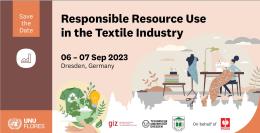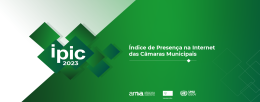UNU-IAS will co-organise an online symposium on community-based activities and governance for seascape restoration, the second in the Satoumi and Ecosystem Restoration Symposium series. Focusing on blue carbon systems restoration (mangrove, seagrass, and salt marshes) and citizen science applications, the symposium will feature practitioners of blue carbon ecosystem restoration from around the world to discuss how we can enhance and strengthen restoration efforts.
The symposium series aims to build momentum towards the UN Decade on Ecosystem Restoration for coastal ecosystems, creating a network of stakeholders for satoumi restoration. It will share information on good practices and challenges, and identify gaps in restoration to develop policy recommendations.
The event is co-organised in partnership with the Ocean Policy Research Institute (OPRI), the Ministry of the Environment, Japan (MOEJ), and the International Partnership for the Satoyama Initiative (IPSI).
Language
The event will be held in English and Japanese.
Participation
To participate online, please register in advance.
Please note that participants in UNU events may appear in photography, screen captures, videos, and/or audio. For further information please refer to Events.
Programme
MC: Makiko Yanagiya (Programme Coordinator, UNU-IAS)
13:00 Opening Remarks and Introduction
- Tsunao Watanabe (Senior Programme Coordinator, UNU-IAS)
- Hide Sakaguchi (President, OPRI, Sasakawa Peace Foundation)
Overview of First Symposium
Impact of Climate Change and Biodiversity Conservation in Satoumi
- Junko Toyoshima (Research Fellow, OPRI)
13:30 Session 1: Citizen Science and Coastal Ecosystem Restoration
Coastal Ecosystem Conservation and Citizen Science – Cases of Shiretoko World Natural Heritage and Indonesia
- Mitsutaku Makino (Professor, Atmosphere and Ocean Research Institute, University of Tokyo)
Coast Card Project in Chesapeake Bay
- William Dennison (Professor, University of Maryland)
Citizen-Centered Ecosystem Restoration in Tokyo Bay
- Keita Furukawa (President, Association for Shore Environment Creation)
Q&A, Discussion
14:25 Session 2: Blue Carbon Ecosystem Restoration
Activities of the International Blue Carbon Initiative
- Stephen Crooks (Co-Chair of the International Blue Carbon Scientific Working Group, International Blue Carbon Initiative)
Local Actions on Blue Carbon Ecosystem Restoration in Yokohama and Introduction of Japan Blue Economy Association
- Masato Nobutoki (Executive Board Member, Japan Blue Economy Association)
Restoration of Eelgrass Beds and Satoumi Activities in Hinase, Bizen City
- Takehiro Tanaka (Director, Satoumi Research Institute)
Q & A, Discussion
15:25 Session 3: Panel Discussion
Moderator: Naomi Harada (Professor, University of Tokyo)
Panellists:
- Keita Furukawa
- Takehiro Tanaka
- Masato Nobutoki
- Hiroetsu Aoyama (Director, Environmental Policy Office, Ocean and Environmental Policy Division, Ports and Harbours Bureau, Ministry of Land, Infrastructure, Transport and Tourism)
- Yohei Mori (Assistant Director, Biodiversity Policy Division Nature Conservation Bureau, MOEJ
16:25 Closing Remarks
- Naohisa Okuda (Director General, Nature Conservation Bureau, MOEJ)


